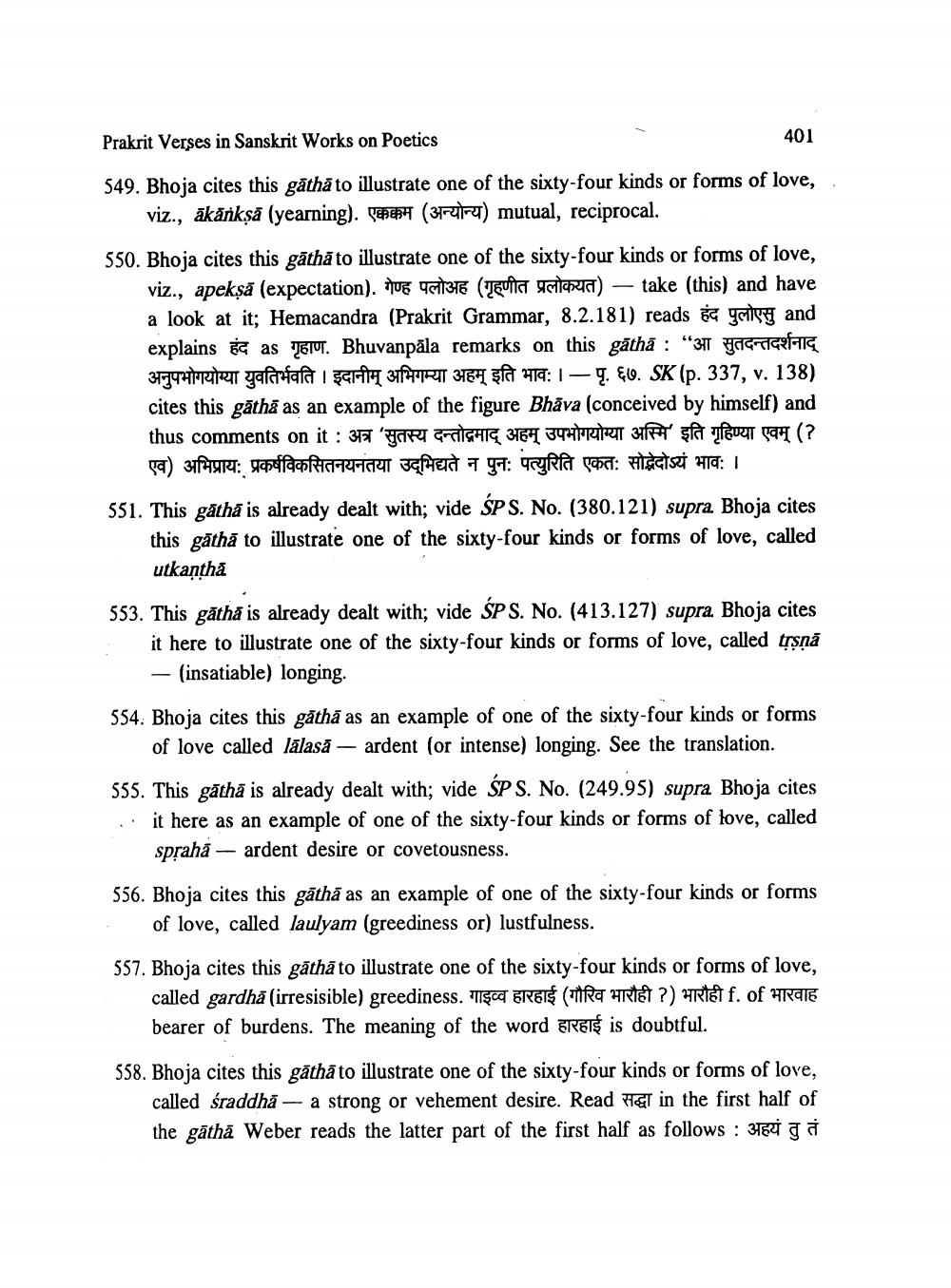________________
Prakrit Verses in Sanskrit Works on Poetics
401
549. Bhoja cites this gāthā to illustrate one of the sixty-four kinds or forms of love,
viz., ākārikṣā (yearning). H (37414) mutual, reciprocal.
550. Bhoja cites this gāthā to illustrate one of the sixty-four kinds or forms of love,
viz., apekşă (expectation). Tug 417376 (Teuta ucha) — take (this) and have a look at it; Hemacandra (Prakrit Grammar, 8.2.181) reads yale and explains हंद as गृहाण. Bhuvanpala remarks on this gatha : "आ सुतदन्तदर्शनाद् 3734RTRIT yafarafat 1 EGRITH 3 MURIT 364 sfa 21: I - Ç. &0. SK (p. 337, v. 138) cites this gāthä as an example of the figure Bhāva (conceived by himself) and thus comments on it : 375 'HART GIGHTG 364 34HTRUTRT 1' shat uguel H (?
एव) अभिप्राय: प्रकर्षविकसितनयनतया उद्भिद्यते न पुन: पत्युरिति एकत: सोद्भेदोऽयं भाव: । 551. This gātha is already dealt with; vide ŚPS. No. (380.121) supra Bhoja cites
this gāthā to illustrate one of the sixty-four kinds or forms of love, called utkantha
553. This gātha is already dealt with; vide ŚPS. No. (413.127) supra Bhoja cites
it here to illustrate one of the sixty-four kinds or forms of love, called trsnā — (insatiable) longing.
554. Bhoja cites this găthā as an example of one of the sixty-four kinds or forms
of love called lālasă – ardent (or intense) longing. See the translation.
555. This gātha is already dealt with; vide ŚP S. No. (249.95) supra Bhoja cites .. it here as an example of one of the sixty-four kinds or forms of love, called
spraha — ardent desire or covetousness.
556. Bhoja cites this gātha as an example of one of the sixty-four kinds or forms
of love, called laulyam (greediness or) lustfulness.
557. Bhoja cites this gāthā to illustrate one of the sixty-four kinds or forms of love,
called gardhā (irresisible) greediness. 'lişca 6R61$ (TRC HRIST) HR f. of HRE bearer of burdens. The meaning of the word FR61 is doubtful.
558. Bhoja cites this gāthā to illustrate one of the sixty-four kinds or forms of love,
called sraddhā - a strong or vehement desire. Read her in the first half of the gathā Weber reads the latter part of the first half as follows : 39621 aa




